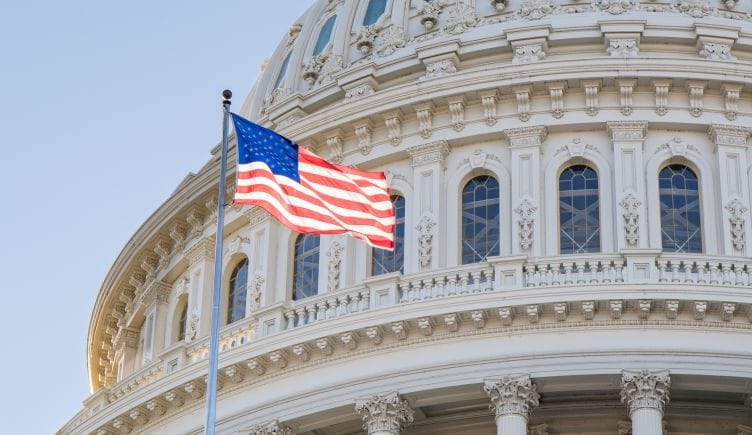Questions surrounding whether VC-backed startups will be boxed out of $350 billion in stimulus loans for small businesses may soon be resolved.
House Minority Leader Kevin McCarthy (R–California) told the Axios Pro Rata Podcast Thursday he has been communicating with the U.S. Secretary of the Treasury Steven Mnuchin about the issue, and that the confusion about which small businesses qualify for loans under the Coronavirus Aid, Relief, and Economic Security (CARES) Act is “going to be solved.”
Under the CARES Act, which President Donald Trump signed into law on Friday, March 27, businesses with fewer than 500 employees would be eligible for up to $10 million in loans from the Small Business Administration. But existing SBA guidelines known as affiliation rules left unclear whether startups backed by venture capital (VC) or private equity (PE) firms would be eligible.
Under the affiliation rules, companies partially owned by outside stakeholders could be required to count employees at their investors’ other portfolio companies when determining whether they hit the 500-employee threshold. So, a collection of tiny startups could appear to the SBA as one large, affiliated company.
The nation’s venture capital and startup communities and their lobbying organizations, including the National Venture Capital Association, have implored the SBA and the Treasury to clarify the affiliation rules to include VC-backed startups, which employ 2.7 million people in the United States, according to the organization.
“Startups are the engine of America’s innovation economy.”
This week, McCarthy, House Speaker Nancy Pelosi (D–California) and Representative Ro Khanna (D–California) joined the fray. Pelosi and Khanna penned an open letter to Mnuchin and SBA Administrator Jovita Carranza on March 31, asking them to secure coverage for VC-backed startups.
“Startups are the engine of America’s innovation economy,” the letter reads, “And our districts in California’s Bay Area and Silicon Valley are home to thousands of these companies. Other high-tech hubs around the country with a strong startup ecosystem will be in need of PPP [Paycheck Protection Program] financing to preserve jobs and survive.”
As Axios noted, both Pelosi and McCarthy helped write the CARES Act and the PPP, which already exempted startups in hard-hit industries like hospitality and restaurants from SBA affiliation rules.
Guidance from the Treasury regarding the eligibility of other VC-backed startups should come in “a day or two,” McCarthy told Axios. That guidance will likely hinge on control stakes, or whether a single outside entity controls a given startup, he said. While that rule would be simple to apply, it would exclude most PE-owned startups.
The exclusion of companies owned by private equity firms would leave many workers unprotected, but implementing a simple rule based on outside control was the fastest way to secure eligibility for the nation’s startups, McCarthy told Axios. More guidance on PE-owned companies and franchisees could be forthcoming.
“When you look at what we’re dealing with, we need ingenuity.”
In the meantime, he added, ensuring VC-backed startups have access to loans for payroll helps fuel innovation — including the innovation needed to fight the COVID-19 pandemic.
“When you look at what we’re dealing with, we need ingenuity,” he told the publication. “We need an idea of how we’re going to compete against this differently than before. That’s just the mindset when you look at a lot of these startups.”
In the Axios interview, McCarthy cited the explosive traction of startups in the video communications, online ordering and telehealth sectors as proof of startups’ importance to the nation’s economy and the crisis at hand: “The last thing we want to see is these innovative new companies in the medical field and others being shut down.”

